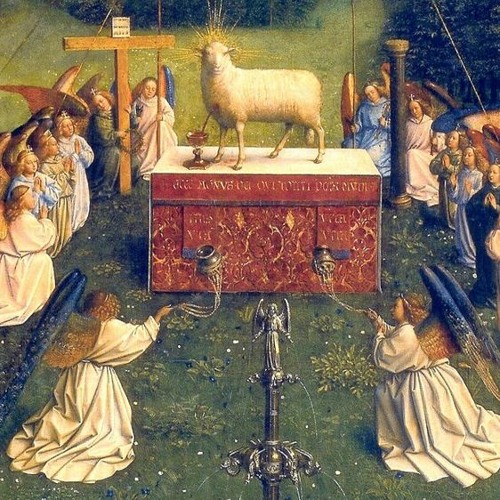Thomas Howard was a literary critic, author, and convert to Catholicism. I wrote about his passing this past October. I’ve started reading his book length exposition of T. S. Eliot’s great poem Four Quartets, a book called Dove Descending: A Journey into T. S. Eliot’s Four Quartets, and I came across this wonderful passage on describing time in the Catholic Mass. Time in the Mass, as Eliot tries to capture in the great poem, is not temporal. Eternity is not just time going on forever, but an eternal moment, all time present at the same time. That is what happens at Mass. Here’s Howard.
Eliot was a faithful communicant at Mass. The notion at work in the Mass is that that which “was” eternally true (the
Lamb of God “slain from the foundation of the world”), and which “will be” unveiled
in the consummation of all things, namely, the eschatological appearance of the
Mystic Lamb pictured in Saint John’s Apocalypse, is here—now—on this altar. It
may be ten o’clock on a Sunday morning at Saint Paul’s Gloucester Road (Eliot’s
parish) in 1942: but all of eternity—“past”, “present”, and “future”—is here, both in time
and in this place. Where are we—or, in
what when are we—at Mass? We are with God in a past eternity when the
Redemption of the world was hatched; and we are in Eden when animals’ blood had
to be spilled to clothe the guilty Adam and Eve; and we are in the Holy of Holies
with Aaron with the blood of lambs; and we are at the Last Supper; and on Golgotha;
and in the eschaton (heaven) before the Eternal Altar. (p. 25)
“Then
the angel said to me, “Write this: Blessed are those who have been called to
the wedding feast of the Lamb.” (Rev 19:9)



No comments:
Post a Comment